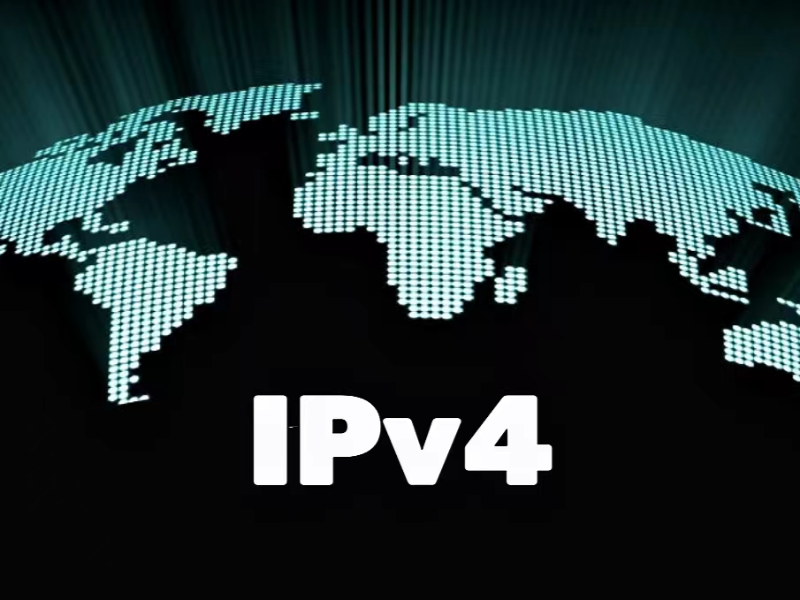- IPv4 addresses are becoming a valuable asset due to their scarcity, with growing demand driven by the expansion of the internet and IoT, making them a potential micro-investment opportunity.
- Investing in IPv4 addresses involves researching the market, finding brokers, and understanding the risks, such as regulatory uncertainty and IPv6 adoption, but it could yield significant returns in the long term.
The digital landscape is constantly evolving, offering numerous investment opportunities in emerging technologies, digital assets, and other unconventional markets. One of the less traditional but increasingly intriguing areas of interest is IPv4 addresses. While many people are familiar with the concept of cryptocurrencies and stocks, IPv4 addresses may seem like an unusual investment opportunity. However, as the internet grows and the pool of available IPv4 addresses diminishes, these assets could offer significant returns for savvy investors.
Also read: What is an IPv4 address?
Also read: Alexander Timokhin: IPv4 market stability and future strategies
- What are micro-investments?
- Understanding IPv4 addresses and their importance
- The case for IPv4 address investments
- The market for IPv4 addresses
- Pop quiz
- How to start investing in IPv4 addresses
- Risks and challenges of investing in IPv4 addresses
- Are IPv4 addresses the future of micro-investments?
- FAQs: Micro-investments in IPv4 addresses
- Quiz answer
What are micro-investments?
Micro-investments refer to investments of relatively small amounts of money in various asset classes. This term has become particularly popular in the age of digital finance, where apps and platforms enable individuals to invest with minimal capital. The idea is to allow people with limited resources to participate in markets that would otherwise require large sums of money.
Micro-investments can be made in several asset types, such as stocks, cryptocurrencies, real estate, and increasingly, digital assets like domain names, IP addresses, and even NFTs (non-fungible tokens).
Investing small amounts in high-potential assets is a great way for individuals to diversify their portfolios and get exposure to different markets. While micro-investments are often considered high-risk due to the volatility of digital assets, they also offer substantial growth potential, especially when invested in niche or emerging markets.

Understanding IPv4 addresses and their importance
IPv4 (Internet Protocol version 4) addresses are numerical labels assigned to each device connected to a computer network that uses the Internet Protocol for communication. These addresses allow devices to find and communicate with each other on the internet. An IPv4 address is typically written in the format of four numbers separated by periods (e.g., 192.168.0.1), and there are roughly 4.3 billion unique IPv4 addresses available globally.
However, due to the rapid expansion of the internet and the growing number of connected devices, the pool of available IPv4 addresses is nearly depleted. As of the early 2010s, major regional internet registries (RIRs) began announcing the exhaustion of IPv4 addresses. This scarcity has led to an increased demand for IPv4 address trading, creating a potential market for investors.
IPv4 address scarcity presents a unique investment opportunity, especially for those willing to enter the market early. The limited availability of these addresses means that they have become a digital commodity, much like domain names and virtual real estate.
Also read: Navigating IPv4 address exhaustion: Strategies and solutions
Also read: IPv4 vs. IPv6: What’s the difference between the two protocols?
As the digital landscape continues to expand, IPv4 addresses are becoming a sought-after resource, much like virtual real estate, making them an intriguing asset for forward-thinking investors.
Sarah Miller, Digital Asset Expert
The case for IPv4 address investments
Investing in IPv4 addresses can be seen as a form of micro-investment, as the entry cost may not be as high as more traditional investments like stocks or real estate. The prices of IPv4 addresses can vary based on factors such as region, the number of addresses in a block, and market demand. However, the overall scarcity of IPv4 addresses makes them an appealing option for forward-thinking investors.
Here are several reasons why investing in IPv4 addresses could be a good opportunity:
- Scarcity and Limited Supply: As mentioned earlier, the number of available IPv4 addresses is quickly dwindling. This creates a sense of urgency for businesses, especially internet service providers (ISPs), large enterprises, and tech firms, who need these addresses to continue growing their networks. As the market demand grows, the value of these addresses will likely increase, potentially leading to substantial returns on investment.
- Growing Internet and IoT Demand: The increasing number of connected devices, including smartphones, smart home devices, and industrial equipment, is fueling the demand for IP addresses. The growth of the Internet of Things (IoT) will further exacerbate the need for more IP addresses, making IPv4 addresses even more valuable.
- IPv6 Adoption is Slow: IPv6, the successor to IPv4, offers a vastly larger pool of available IP addresses. However, the global transition to IPv6 has been slow. Many networks and organizations continue to rely on IPv4, driving up demand and price for available IPv4 addresses. This delay in IPv6 adoption gives IPv4 addresses a longer shelf life as an investment asset.

The market for IPv4 addresses
The market for IPv4 address trading is well-established, with several brokers and marketplaces facilitating the sale and purchase of IPv4 address blocks. These transactions typically involve the transfer of large address blocks (e.g., 1,024 or 65,536 addresses) rather than individual addresses. However, it is still possible for smaller investors to purchase smaller blocks of addresses.
IPv4 address brokers act as intermediaries in these transactions, helping buyers and sellers agree on pricing, terms, and conditions. The prices for IPv4 addresses fluctuate based on market demand, and they can be affected by factors such as geographic region, block size, and usage rights.
Some businesses and investors see IPv4 address portfolios as a long-term asset that could appreciate in value over time, much like digital real estate. While the initial cost may seem high, the potential for long-term growth is substantial, particularly as the supply of IPv4 addresses continues to shrink.
Pop quiz
What is one of the key risks when investing in IPv4 addresses?
A) Over-regulation of the digital market.
B) The inevitable rise of Bitcoin.
C) Slow adoption of IPv6 could reduce the demand for IPv4.
D) IPv4 addresses are physically fragile and hard to store.
The correct answer is at the bottom of the article.
How to start investing in IPv4 addresses
If you’re interested in micro-investing in IPv4 addresses, here are the key steps to get started:
- Understand the Market: Before investing in IPv4 addresses, it’s essential to research the market. Understand the current state of IPv4 address allocation, pricing trends, and the demand in various regions. You can find this information through IPv4 address brokers, online marketplaces, or industry reports.
- Find a Broker: Once you’re familiar with the market, the next step is to find a trusted IPv4 address broker. These brokers can help you navigate the buying process, ensuring that the addresses you purchase are legitimate and meet the necessary requirements.
- Evaluate the Value of an Address Block: When purchasing IPv4 addresses, it’s important to evaluate the potential future value of the address block. Factors such as geographic location, market demand, and the block size should be considered to ensure that the investment aligns with your financial goals.
- Negotiate the Terms: IPv4 address transactions typically involve specific legal and technical terms, including the transfer of registration and usage rights. Ensure that you understand the terms of the transaction before finalizing the deal.
- Long-Term Holding: Much like other forms of digital asset investment, IPv4 address investment requires a long-term mindset. While the returns may not be immediate, holding onto IPv4 addresses over time could lead to significant gains as demand increases and available supply decreases.
Also read: How does an IP address contribute to fraud detection?
The scarcity of IPv4 addresses in an increasingly connected world presents a unique opportunity for investors to tap into a digital commodity with immense long-term potential.
Jason Livingood, IETF Administration LLC Board Chair
Risks and challenges of investing in IPv4 addresses
While IPv4 addresses can be an appealing investment opportunity, there are several risks and challenges to consider:
- Regulatory Uncertainty: The market for IPv4 addresses is still relatively new, and regulatory frameworks for trading and investing in digital assets like IP addresses are still evolving. Changes in regulations could impact the value of IPv4 addresses or the ability to trade them.
- IPv6 Transition: While IPv6 adoption has been slow, there is still the possibility that it will eventually replace IPv4. If this happens on a large scale, the demand for IPv4 addresses could decline, potentially diminishing their value as an investment.
- Market Volatility: Like other digital assets, the market for IPv4 addresses can be volatile. The value of IPv4 address blocks may fluctuate significantly, depending on supply and demand, regional trends, and global economic factors.
- Liquidity Issues: Unlike stocks or bonds, IPv4 addresses may not be as easily tradable in the short term. Finding buyers or sellers in the market can sometimes be a challenge, especially for smaller address blocks. This lack of liquidity can make it harder to sell IPv4 addresses quickly if you need to liquidate your investment.

Are IPv4 addresses the future of micro-investments?
IPv4 addresses represent a unique and potentially lucrative micro-investment opportunity for those willing to explore unconventional markets. While the initial costs may seem high compared to traditional micro-investment options, the scarcity of IPv4 addresses and the growing demand for internet connectivity make them an asset worth considering.
As businesses and individuals continue to rely on the internet and the Internet of Things, the value of IPv4 addresses is expected to rise. By investing in these digital assets, you could capitalize on the increasing demand and the finite supply of these resources.
However, like any investment, it’s important to approach IPv4 address investments with a clear understanding of the risks and rewards. Make sure to do thorough research, seek expert advice, and evaluate the potential long-term gains. Whether you choose to dive into this niche market or explore other types of micro-investments, the future of digital assets is full of opportunities for those willing to innovate and adapt.
FAQs: Micro-investments in IPv4 addresses
IPv4 addresses are numerical labels assigned to devices on a network, allowing them to communicate over the internet. They are valuable because the number of available IPv4 addresses is limited and nearly exhausted, leading to increased demand and making them a potential investment opportunity.
To invest in IPv4 addresses, you typically need to purchase blocks of these addresses through brokers or online marketplaces. You’ll need to evaluate the value of address blocks, consider factors like region and demand, and ensure the addresses are properly transferred and registered.
Risks include regulatory uncertainty, the slow but eventual adoption of IPv6, market volatility, and liquidity issues, as IPv4 address trading is still a relatively niche market. Additionally, the value of IPv4 addresses may fluctuate depending on supply and demand dynamics.
While IPv6 offers a much larger pool of IP addresses, its adoption has been slow. As long as IPv4 remains in widespread use, the demand for IPv4 addresses will likely persist, keeping their value high. However, a significant shift to IPv6 in the future could reduce the demand for IPv4 addresses.
Yes, small investors can participate by purchasing smaller blocks of IPv4 addresses, though they may need to go through brokers or marketplaces that facilitate transactions. This allows individuals with limited funds to invest in a market that traditionally involves large-scale transactions.
Quiz answer
C) Slow adoption of IPv6 could reduce the demand for IPv4.
